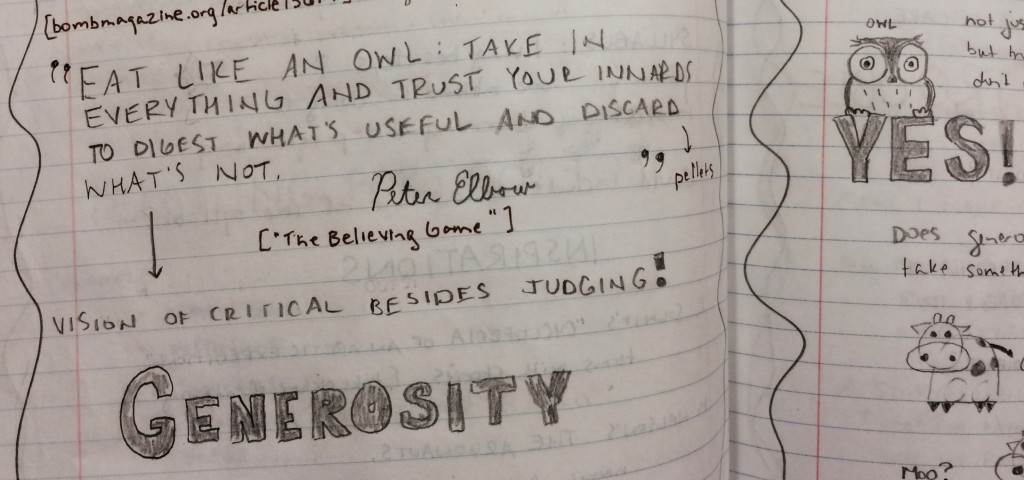I’ve been working on this project for just over a month and I think I’m getting closer to a plan. It’s difficult though. I’ve taken a lot of notes in my green notebook (59 pages) and written several posts (19), so it feels like I should have something more to show for it. I’m trying to block out that voice that keeps telling me that I should stop doodling and start writing. At some point, I should listen, but for now I need to remember that this process takes some time. I need to be patient. Ruminate.
Syllabus as Structure, take 2 or 3 or…?
I keep coming back to the idea of using a syllabus as the structure for this book project. This idea has taken many forms. Today’s version involves breaking up the bulk of the book into two parts (in addition to an introduction):
The Syllabus Sections, with undisciplined explanations, interventions, stories. Sections might include: course description, questions to pose and explore, goals (for course, for education in general), expectations/rules, teaching philosophy, methods/structure/format, a few words on blogging/social media, habits/practices/approaches, tips/strategies.
3 “actual” Syllabi that I’ve constructed for the book and that I may want to teach, to/with others, or to myself? These syllabi, which will involve a course description, assignments and course readings, will probably include: Staying in Trouble, Living Beside/s and Feminist Storytelling Online.
Eat Like an Owl
Last week, I encountered this great quotation:
Eat like an owl: take in everything and trust your innards to digest what’s useful and discard what’s not.
Peter Elbow
Yes! Being generous with your readings of others. Not instantly dismissing ideas or authors. I found this quotation in Elbow’s article, “The Believing Game: Methodological Believing.” In it, he argues for the importance of developing methods for believing in others’ ideas as opposed to instantly doubting and rejecting them. In my notes I wrote in bigger letters, GENEROSITY. I think being generous to other people and their ideas is crucial for learning, engaging and flourishing individually and collectively. I want to include generosity, along with capaciousness, curiosity and patience in my list of qualities of character that help foster transformative learning spaces and experiences.
